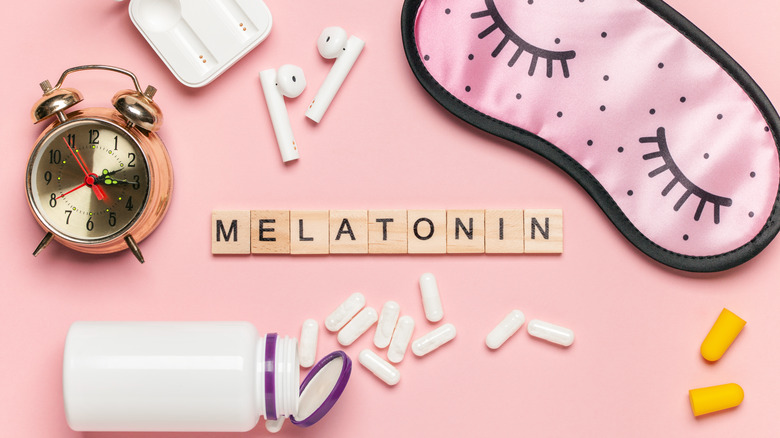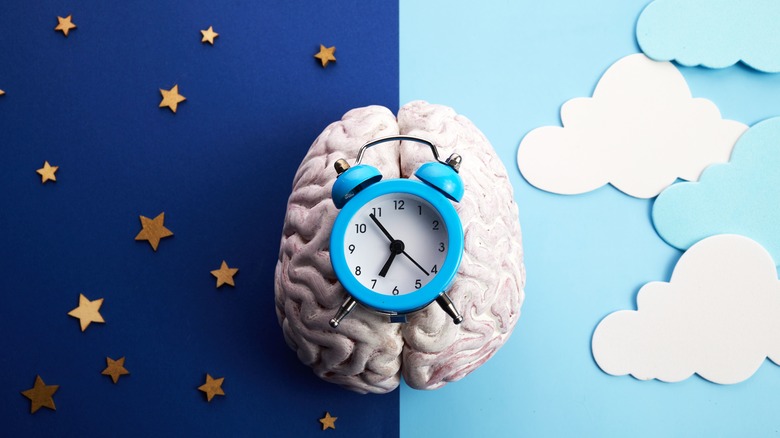How To Determine If You Have A Melatonin Deficiency
Many adult humans are awake for 16 hours and sleep for approximately 8 hours during every 24-hour cycle, but have you ever stopped to wonder how this occurs? You may have heard of melatonin, which can be sold in capsule form as a sleep aid in local drug stores like CVS or Walgreens. As explained by the Mayo Clinic, the body naturally produces the hormone melatonin to promote sleep when it gets dark outside. During the daytime, levels of melatonin decrease due to light in the environment. Melatonin is produced in the pineal gland of the brain and helps to regulate the body's circadian rhythm, according to the Sleep Foundation.
Individuals who have sleep disorders, work a night shift that causes them to have to sleep during the day, and those who experience jet lag may take melatonin supplements to treat their sleep disturbances. The Sleep Foundation shares that melatonin supplements are well-tolerated by most people, and come with few side effects. However, a small portion of individuals may experience headaches, dizziness, or drowsiness during the day. It's important to speak with your doctor before taking melatonin and about any side effects you may experience.
The foundation recommends limiting time spent on your cell phone, laptop, or any other device that emits blue light before bed, as research suggests these devices can disrupt your circadian rhythm. While rare, it's also possible for someone to have a melatonin deficiency, which can further disturb their sleep quality.
What are signs of melatonin deficiency?
The body's sleep-wake cycle is so dependent on melatonin that a lack of it can disturb sleep patterns, as well as contribute to other health problems. According to a 2012 article published in The Scientific World Journal, melatonin production tends to decrease as a person ages, and melatonin deficiency can be seen in relation to diseases such as dementia, mood disorders, and cancer. Because of this, someone might notice symptoms of other health conditions that coincide with reduced melatonin in their body.
Individuals who are experiencing melatonin deficiency may experience insomnia, mood disturbances, symptoms of menopause or hypothyroidism, or intestinal pain (per RxEconsult). Some other potential symptoms related to insufficient levels of melatonin are high blood pressure, anxiety, headaches, and irritable bowel syndrome, as further explained by Perpetual Wellbeing.
WebMD notes that melatonin deficiency is rare, but if you are experiencing problems related to sleep and suspect that low melatonin levels may be the culprit, it could be beneficial to schedule a visit with your primary care doctor. If they suspect a sleep-related disorder, they may then refer you to a somnologist, which is the formal name for a sleep doctor. The American Sleep Association reports that somnologists are trained physicians who can evaluate and treat sleep disorders, including circadian rhythm disorders. A doctor may recommend taking a melatonin deficiency test which can detect abnormal melatonin levels in the body from a saliva, urine, or blood sample (per Lybrate).


